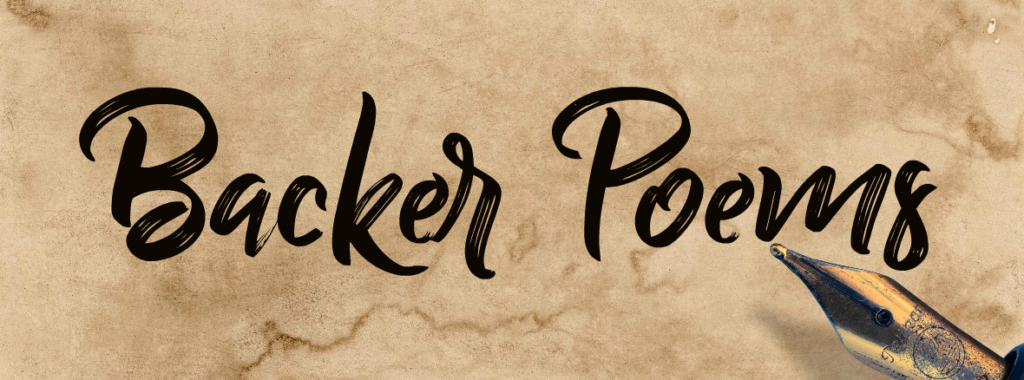It seems like a long, long time ago that i first unboxed Village and later (with my daughter Cassandra) its two expansions, Village: Inn and Village: Port. After the ungodly amount of work that the Dungeon Petz video posed me (and by popular demand), i gladly kicked back and produced something a little more relaxing. Here’s how it turned out:
Hi! It’s Ryan from Nights Around a Table, and this is Village, a worker placement game for 2-4 players with a twist! Let me show you how to play.
You and your friends play families going about their lives in a quaint German hamlet. Generations of your family will live and die throughout the game, getting jobs, serving on council, selling goods, and venturing to neighbouring villages, all with the hope of making a name for themselves in either the village chronicle, or the church. The game ends when either the chronicle or the potter’s field are filled with dead meeples, and then you count up each family’s prestige points to see who’s won.
Each player starts with a little farmyard with four first-generation family members and a bit of money. At the beginning of every round, the different worker placement slots on the common game board are seeded with these influence cubes, which are a currency that let you do different things. There are also some black plague cubes which shorten the lives of your family members with no benefit. You have a time marker that runs the periphery of your farmyard. Time itself is a currency in the game. Whenever your marker loops all the way around and passes the bridge… one of your family members dies.
i called this a worker placement game with a twist. The twist is that on your turn, you have to choose one of the placement slots from the main board, and take a cube from it. Then, you may activate the space, which may involve placing one of your family members there. So the actual worker placement is optional, but taking a cube is mandatory. Once all of the cubes have been taken from the board, the round ends. Then there’s a special phase where you call mass at the church. The spaces are re-seeded with cubes according to player count, and a new round begins.
Let’s look at what each spot in the village can do for you.
THE LOCATIONS
After taking a cube from this space, you can take 2 bags of grain for your farm. You can only take grain if you have at least 1 family member on your farm, and your farm can hold 5 bags of grain at a maximum. If you have a horse and a plow, you can take 3 bags of grain. If you have an ox and a plow, you can take 4 bags of grain. We’ll see how to get animals and plows in a sec. These benefits don’t stack – so you can’t have, like, 2 oxen and 2 horses and four plows and be like “ima take 14 bags of grain” – it’s only ever 2, 3, or 4 bags depending on the resources you’ve got, and your farm still can’t store more than 5 bags total.
This whole crafts area has five different buildings where you can either make things, or train your family members to make things so that they’re cheaper in the long run. You can build a wagon, raise a horse or an ox, make a scroll, make a plow, or sell grain for money. First, you take a cube from the space. Then, you can either pay time to train up a family member to make something in one of the buildings, or you can straight up pay cubes to buy the thing.
If you want to train someone, you move the family member from your farm…. to one of the buildings. It’ll cost you two or three units of time to do this, depending on which building you choose… so move your marker ahead two or three spaces on your time track. Then, if you want to, you can pay another two or three time to have your trained-up family member make that thing for you. Do the time, then take the thing.
If you don’t want to spend the family member and the time, you can choose instead to pay influence cubes or grain to get the thing: a pink and an orange cube to buy a plow or a wagon, a pink cube to buy a scroll, or three bags of grain to get an animal. That seems easier, right? Well, the advantage of training up a family member instead of paying the cubes is that the next time you grab a cube from this space in a later round, if you already have a family member trained up in a particular building, you can just pay the second time cost to get the thing, since that family member is already trained in making it. So just 2 time the next time you want a wagon or a scroll, or 3 time for an animal or a plow.
Craft buildings can employ any number of people – either yours or other players’.
The Mill space is a little different than the other four buildings. You don’t spend a family member here – the only thing you can ever do is spend 2 time and 2 bags of grain to get 2 coins.
There’s no limit to the number of plows, animals, wagons, scrolls, coins, or influence cubes you can store on your farmyard. Your only limitation is that 5-grain cap.
By taking a cube from the travel space, you can either send a family member voyaging to one of the two neighbouring villages, or continue a family member’s trip in progress. 2 time and 1 wagon, plus either two pink or two brown cubes, lets you put a family member here or here. You get to put a marker down for every new place you visit, claiming the reward depicted inside the circle – either 3 points, two cubes in any colour, or a coin. What’s more, those markers will be worth extra points to you at the end of the game.
In a later round, if you take a cube from this space and you already have someone voyaging, you can pay two time, a wagon, and the cubes depicted to send that family member voyaging onward to an adjacent town. You’re allowed to backtrack, but you can only ever have one of your markers in a given town. You can send multiple family members voyaging, and they’re allowed to be in the same town. Likewise, multiple family members from multiple players can be in the same town… and towns can have markers from multiple players in them… just never the same colour twice.
You’ve got a few different options if you take a cube from the Council Chamber. First, you take a a cube. If you don’t have any family members at council, you can pay 1 time and either a scroll or two green cubes to place a family member in this first slot. If you’re the first person to claim the ring this round, that makes you first player, and you get first pick of spaces next round. If someone else got there before you, no ring for you.
If you take a cube from this spot and you’ve already got a family member in the council, you can choose instead to pay a certain amount of time, and the cube or scroll cost, to bump up that person’s standing. With each spot you climb, you’re earning more and more endgame points. AND you get to claim the perk in your current position, or one perk from any of the previous slots: the first player ring, if it’s there, two cubes of your choice from the supply, a good of your choice from the supply, or pay a coin for 3 prestige points. A third option when you claim a cube from the council chamber is to take a benefit on or below a family member’s current standing. With this option, you get a perk, but you’re not paying time and stuff to move the family member up.
Multiple family members – yours or anyone else’s – can occupy the different steps of the council chamber.
The Market is the only space on the board where taking the action is mandatory. If you take the cube from here – and there’s only ever 1 per round – then it’s time for everyone to sell their goods at market. As the person who activated the space, you get to sell first. Choose a customer who wants what you’ve got, cash in that stuff, and take the customer tile. Put it next to your farm and keep it secret until the end of the game, when it’ll be worth points to you. Then, you go around the table in clockwise order, and everyone gets a chance to sell things to the remaining shoppers. Only these guys count – the other customers are in line for a future market day. If a player can’t sell to anyone at these stalls, he or she must pass, and is out for this entire market day. You keep going in clockwise order, and if play comes back around to you and you haven’t passed, you can sell to another customer. The catch is that for every sale beyond the first one, the seller – including you, if you kicked the whole thing off – has to spend a green cube and 1 unit of time in order to make the sale. So as the activator, you get a free first sale, but then you have to pay in order to sell to every customer thereafter. You keep spinning around the table until either all the available customers have been satisfied, or everyone has passed.
Then, fill up the empty spaces with the customers waiting in line, move the line up, and fill in the gaps with new customers dealt randomly from a face-down stack.
Down here at the church, after taking a cube from the spot, you can pay one brown cube or 3 time… to add one of the family members from your farmyard… to the black bag o’ holy righteousness, just like they taught you in Sunday school. It makes no sense why you’d want to do this until we see what mass looks like at the end of the round, so sit tight.
If you take a cube from the family space, you can either gain a new family member from the supply, or take one of your family members back from the main board to your farm – someone who’s working, or travelling, or serving on council or the church – but you can’t raise someone from the dead. If you choose to gain a new family member, you take the family member with the lowest available number on it – so because you don’t have any 1’s left in your supply, you take a 2, and that represents a second generation family member.
The last space on the board is the well. There are no cubes you can take here; instead, you have to pay three cubes of any colour (except black) in order to take any of the actions on the board. If you do this, you just take the action at that space – not the cube. And you can only use the well if there’s at least one cube left somewhere on the main board.
If you ever take a black plague cube from the board, you have to move your marker ahead 2 spaces on your time track. You can’t do anything useful with plague cubes, and you always return them to the green bag at the end of the round, so there’s guaranteed to be a certain number of them that show up on the board, no matter how much social distancing you practice.
After a player takes the last available cube and optionally takes that space’s action, the round is over, and it’s time to call mass.
MASS
During mass, one player is going to draw four game pieces from the black bag o’ holy righteousness. There are always four black monks in the bag, and then whatever family members players have put in there by taking actions at the church. You’re allowed to look in the bag if you can’t remember how many family members everyone’s got in there. Before you draw out those four people, though, you have a chance to earn God’s favour by… you know. Paying money.
Beginning with the starting player and going clockwise, each player gets the opportunity to pay gold to pull their family members out of the bag – 1 gold per family member. So if the starting player has 4 family members in the bag, he or she can pay 4 coins to take them all out, and those are the Chosen Four for this round. But maybe the starting player only pays 1 coin to assure his or her family member of salvation? Then the next player gets a shot, and so on, until the last person in turn order gets a chance to get the church’s attention with their filthy lucre. If you fall short of 4 people, you draw the rest randomly from the bag. Those remaining people could be monks, or they could be family members – the only way to make sure one of your people gets chosen is to pay.
Next, any monks you drew go back in the bag… and you take the non-monk people and put them on the first window of the church. This is gonna be sort of an area control thing: whoever has the most people in the church gets 2 prestige points, and ties are broken by whoever has the family member in the leftmost window of the church. How do you move your family members up in the church standing? YA PAY.
Again, beginning with the starting player and going clockwise, each player can pay bags of grain to move their family members to better and better windows. The grain cost is here, between each window. Multiple people, from the same or different families, can occupy the same window. You can move as many family members as far as you like, as long as you have the grain to do so, but you only get one shot at this per round, and the option goes in player order.
Once mass is over, the dust has settled, and the monks have all gone home with their robes stuffed full of money and food, the player with the majority of family members in the church gets 2 prestige points, and your standing in the windows breaks any ties. So between these two players, blue takes it, because he has the leftmost family member. If two or more players are tied for leftmost windowness, all tied players get 2 points. Your family members stay in church for the rest of the game, unless you use the family action to reclaim someone, or they sit in church so long, they die.
DYING
When you pay enough time to move your marker across the bridge on your player board, one of your family members kicks the bucket. The family member who merges with the infinite has to have the lowest possible number on it – older generations die out before younger ones. If you have multiple old-timers with one foot in the grave, you get to choose between them. This usually happens at the end of your turn, so maybe the family member marked for death gets to take one last action, but if someone dies during a Market Day action, you have to nix a family member immediately. Everyone on the main board or in your farmyard is fair game, but family members trapped in the black bag o’ holy righteousness are strangely immortal. Pluck the chosen family member with reaper-like precision, and place the dearly departed in the village chronicle, depending on where that family member spent his or her time. If the family member was a councilperson, he or she goes in one of these red spaces. If the family member was a craftsperson, use one of these yellow spaces, and so on – just look for the coloured crest wherever that family member was hanging out. If you lose a family member and all of the available spaces under that banner are occupied, your family member did not die famous… and has to go in the regular graveyard for boring normal people. Sigh. Grandpa will always be remembered as an underachiever. Just kidding. No one’s going to remember grandpa.
ENDGAME
If all of the spaces in either the village chronicle… or the graveyard where what’s-his-name is buried are filled up, that triggers the end of the game. Everyone else gets one more turn in clockwise turn order. If the cubes run out while players are taking their final turns, those last players get to take any action for free, without having to pay the 3-cube well cost.
If the game ends during a Market Day action, and the player who triggered the end of the game is also the person who initiated Market Day, then after Market Day is done, that was that player’s last turn, and everyone else gets one more turn in player order. If the person who triggered the end of the game is not the same person who started the Market Day, then everyone else gets a final turn, and the game ends with the Market Day initiator taking one final turn.
When everyone’s final turn is over, you say the last mass, and then count up the points to see who’s won.
SCORING
At the end of the game, you get a sliding scale of points based on how many markers you placed on the map: 1, 3, 6, 10, 14, or 18 points. In the council chamber, each family member earns points depending on which section they occupy, so 6 points for this guy, and 2 points for each of these two guys. Likewise, each family member in the church earns points based on which window they’re on. You get 4, 7, or 12 points for getting 3, 4, or 5 family members into the village chronicle… and however many points are listed on the customer tiles you’ve collected. Each coin you saved earns you a point. Whoever has the most prestige points wins, and the total number of customer tiles you have breaks ties. If you’re still tied, whoever has the most living family members wins.
SETUP
To set up the game, spend hours carefully applying stickers to the meeples because you’re an utter perfectionist and if you put one on crooked you’ll hate yourself for the rest of your life.
Everyone takes a farmyard board in their chosen colour, and places four level-1 family members there, along with one coin. Put one of your markers here… and another one up here to track your score.
All the other family members and coins go nearby to form a supply.
Shuffle and stack the customer tiles next to the board, and deal them out to the market spaces. In a 3-player game, skip this space, and in a 2-player game, skip this one.
Same deal with the chronicle – you have to cover up these spaces with some non-player pawns in a 3-player game, and these ones if you’ve only got 2 players, to create scarcity. Do the same in the loser graveyard.
Pick the setup card that matches your player count… and put those cubes into the green bag o’ cube dispersal. Shake it up, and seed the spots according to the numbers on the card. You’ll follow this same procedure at the beginning of every new round.
The starting player ring goes in the council chambers, the oldest player gets the starting player marker, and the four monks go in the black bag o’ holy righteousness.
And now, you’re ready to play Village!
Did you just watch that whole thing? Oh – hey! To 100% this video, click the badge to subscribe, then click the bell to get notifications when i’ve got new stuff!
[Music – Board Game Boogie by Ryan Henson Creighton]
Addenda
At 9:58, i say that “you can’t do anything useful with plague cubes.” It’s true that you can’t spend black plague cubes like you can the other cubes, but Evan Scussel pointed out to me in a BoardGameGeek forum that my statement may have been misleading. You can still take the action of a space from where you take a black plague cube – the cube itself just has no economic value.
Get Your Own Copy of Village
If you like the idea of worker placement games, Village is a nice, gentle introduction to the mechanic. Pick up your own copy of the game (or its expansions, Inn and Port) using the Amazon links provided, and i’ll receive a small commission.









Trackbacks/Pingbacks